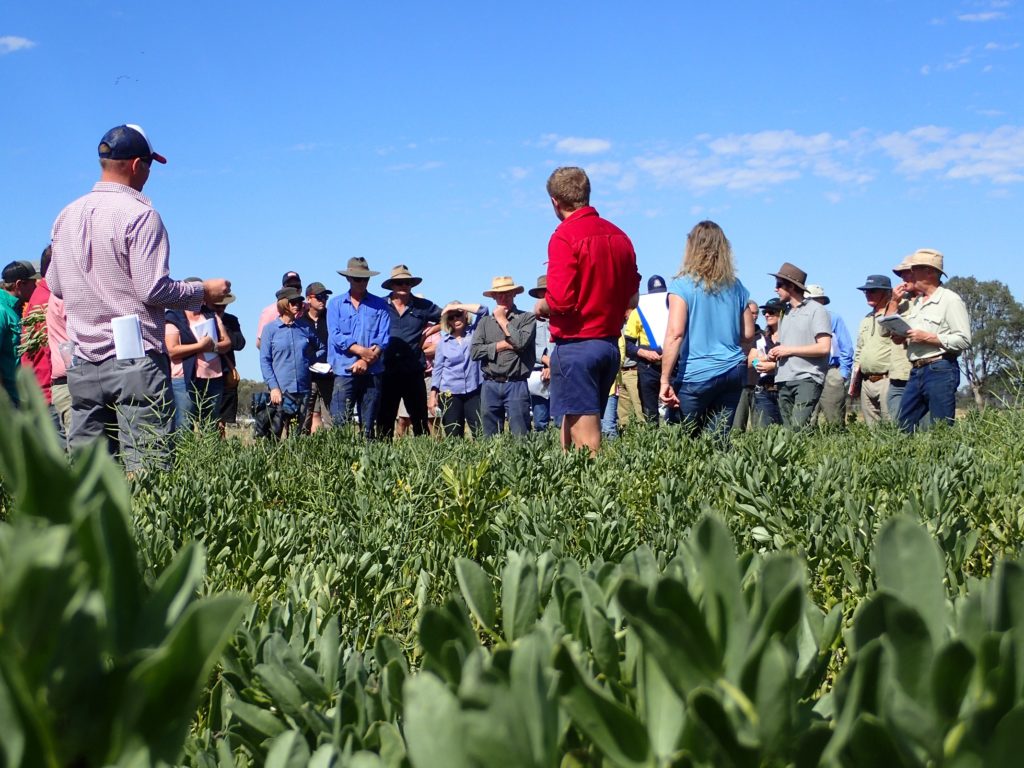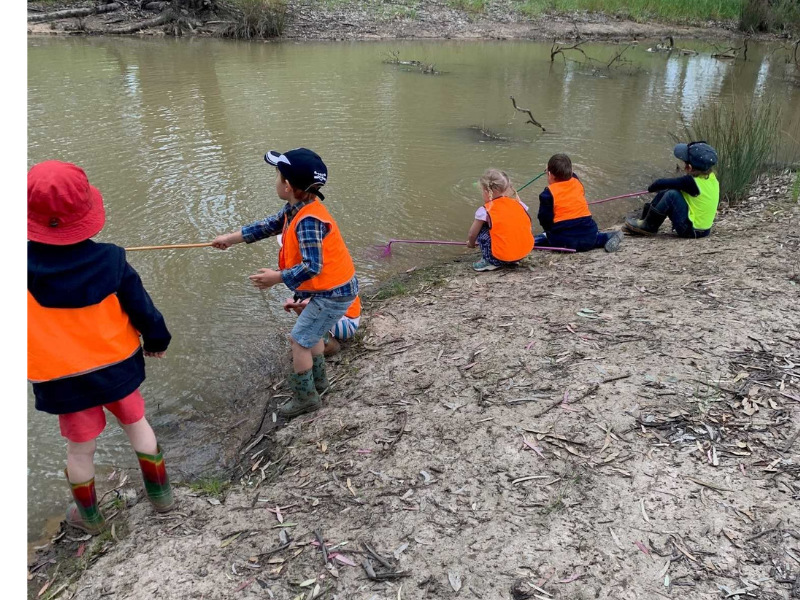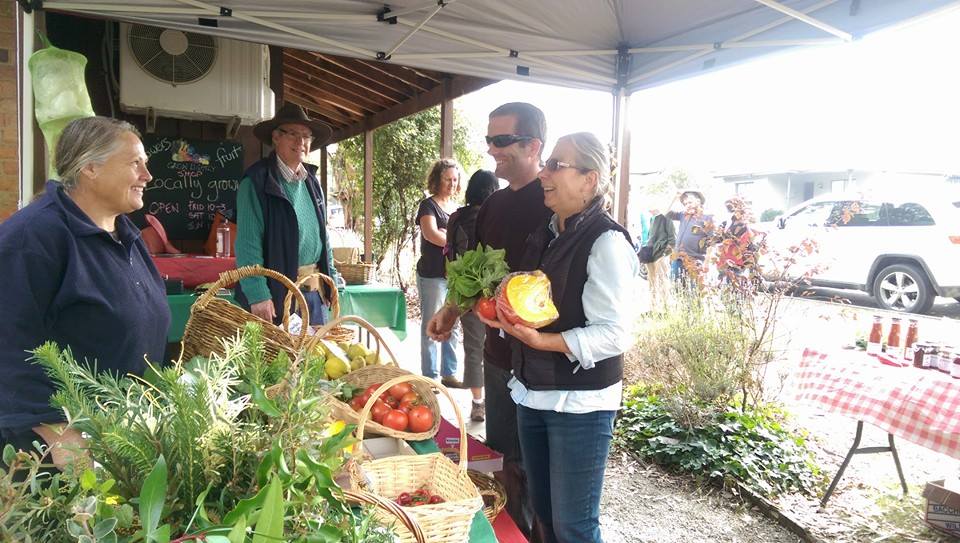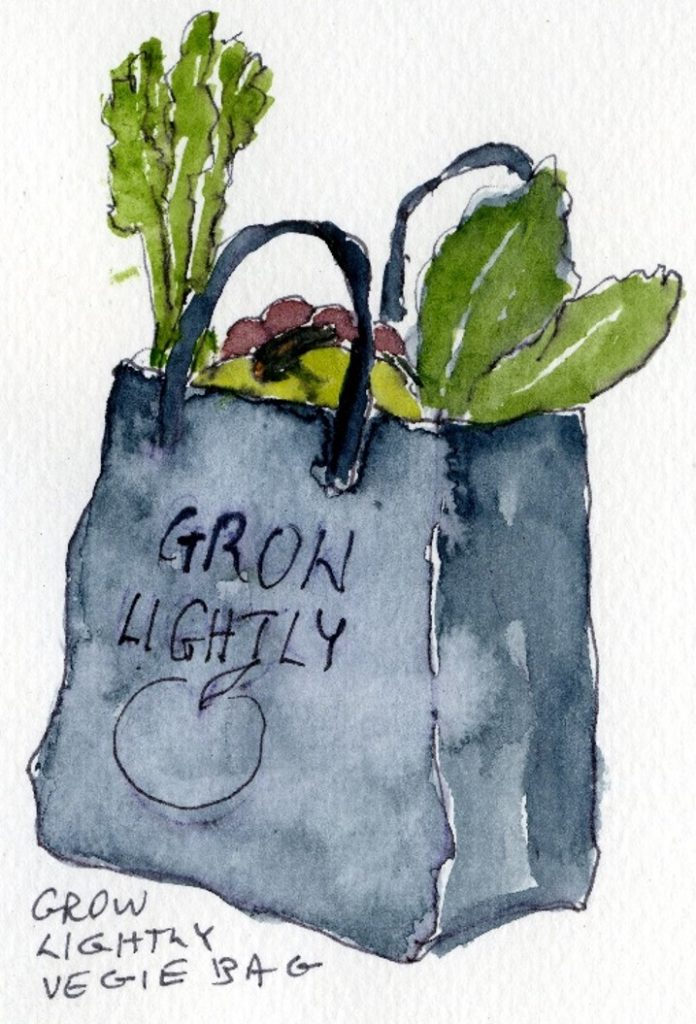Foundation for Rural & Regional Renewal (FRRR)
For many remote, rural and regional communities, drought has been impacting families and businesses for years. Even though it is not always covered in mainstream news, those living in certain parts of Australia know all too well what lasting effects drought can have. For many working in the agriculture industry, the thought of current and future drought can be a stressful and frightening prospect with crops and livestock often hit the hardest. However, in each of these communities there is a fighting spirit, often driven by community-led groups and not-for-profits (NFPs) that work hard to support the wider community.

One of these groups is the Gippsland Agricultural Group who are driven by achieving results for farmers in the south east region of Gippsland in Victoria. The organisation is made up of Central and East Gippsland farmers and service providers that have joined forces as people with the shared desire to improve productivity, profitability and sustainability using research, collaboration, product trails and demonstrations to communities in the area.
One example of how Gippsland Agricultural Group planned to achieve this was by holding multiple field days. The Gippsland ‘Connect and Prepare’ field days were designed to build a sense of place and connection for farmers. Research conducted shows that farmers are most comfortable learning from other farmers in informal settings such walking around a paddock talking or learning while doing. For Gippsland Agricultural Group, providing resources like easy access to agricultural service providers, mental health and financial support, as well as strategies and tactics and practical learning, are all key to strengthening preparedness and resilience to future drought events.
Using a $42,920 grant through the Australian Government’s Future Drought Fund Networks to Build Drought Resilience program, Gippsland Agricultural Group held two farmer field days. Both days focused on farmer mental health and wellbeing by bringing health service providers to an environment where farmers are comfortable and feel they will be more likely to engage with services. Each day also featured key staff from other agricultural networks to encourage relationship development, project collaboration and sharing of ideas and resources. The first field day targeted producers, with a focus on networking and connecting with one another and relevant agriculture service providers.
While the field days are a great way to network and increase social interaction, the key purpose of the events is to build knowledge and skills with the estimated 200 producers, 15 agricultural agencies and service providers, and eight agricultural produce-led focus groups.
These events increased participant knowledge and understanding of the risks posed by drought by offering a program that shared information on climate variability. The events carried positive messaging about the resilience of regional producers focusing on practical, implementable drought preparedness solutions for everyday mum and dad farms.
In addition to funding the field days, the grant also enabled the installation of basic toilet facilities at a site frequently used for social and professional networking events. The community now has access to a space that supports educational, social and networking activities in a safe and hygienic space.
Twenty-eight community-led projects will share $123,850 in grants, thanks to a partnership between FRRR and the Gardiner Dairy Foundation.

This is the 21st year of the Gardiner Dairy Foundation Community Grants, which provide up to $5,000 for locally-led projects that strengthen Victorian dairy communities.
Allan Cameron, Gardiner Foundation Chief Executive Officer said that local community groups and not-for-profit organisations play a critical role in the sustainability of Victoria’s dairy communities and it’s great to be able to support them to bring their ideas to fruition.
“Once again, we’ve seen creative projects come through from community groups to address persistent issues. Our commitment to the Victorian dairy industry values these groups and their ability to create vibrant communities broadly benefitting all residents including those involved in dairy. We look forward to hearing about the impacts as these projects are implemented in the coming year,” Mr Cameron said.
This year, the program attracted lots of interest, with community groups reporting challenges in local fundraising following two years of COVID interruptions and increasing operational costs hitting hard in the current economic environment.
Despite this, these local groups show a determination to overcome challenges and invest in projects and initiatives that enhance local opportunities or help fill gaps in service delivery, explains FRRR’s CEO, Natalie Egleton.
“In the applications this round, we saw a range of programs, activities and event equipment purchases that at their core build the social capital of the communities. From supporting a new community choir to several programs for engaging and enabling young people in learning, social and physical development. These and many other projects ensure that community facilities are fit for purpose to support meetings and activities, and that programs such as creating an edible garden present new opportunities for volunteers to develop skills and knowledge.
“This diversity of projects reflects that each of these communities is different and, therefore, so too are their needs and priorities. We are grateful to the Gardiner Foundation for recognising the importance of communities being able to access flexible funding to fill these gaps and for partnering with us for so long to provide this funding,” Ms Egleton said.
Among the projects funded are:
Gippsland
Northern Victoria
South Western Victoria
A full list of grant recipients is detailed below.
| Organisation | Project | Location | Grant | |||
|---|---|---|---|---|---|---|
GIPPSLAND | ||||||
| Hillend & Grove Rovers Football Netball Club | Interactive Display Screen Build digital capability by purchasing an interactive large screen for the sporting club's meeting facilities to support local training for CFA and community information nights. | Willow Grove | $4,272 | |||
| Jeetho Hall Inc | Planning Ahead to Maintain our Unique Community Asset Building community resilience by improving local community infrastructure and meeting places to increase hall usage for social connectedness and economic prosperity. | Jeetho | $5,000 | |||
| Manna Gum Community House Inc | Corner Inlet Young People's Cooperative Increase youth engagement and participation in social community activities with street games equipment and art supplies for Community Houses in the Corner Inlet region. | Foster | $4,982 | |||
| Milpara Community House Inc | What's a Good Thing To Do? Support young people's social connection in Korumburra by engaging them in a co-design process to imagine and develop local spaces and activities for their use. | Korumburra | $5,000 | |||
| Mirboo North Grainstore Committee of Management Incorporated | Improving the Usability of our Community Space Building community resilience by improving local community infrastructure and meeting places. | Mirboo North | $5,000 | |||
| Orbost Exhibition Centre on the Snowyriver Inc | pARTicipate — Part 3 Digital Connections to Strengthen Community Participation Build the capacity of the Orbost Exhibition Centre by purchasing a portable video conferencing system to improve community meeting options, including remote connection to increase participation in activities. | Orbost | $5,000 | |||
| The Leongatha Men's Shed | Heating and Cooling System for Communal Area Improve community facilities by purchasing an air conditioner for the local Men's Shed to support members and other community groups using the space. | Leongatha | $3,795 | |||
| Treble F Singers Incorporated | Community Singing Group — Enhancing the Health and Wellbeing of Its Members Enhance community vibrancy and culture through supporting the Treble F Choir's purchase of a filing cabinet for sheet music and a video camera to record performances. | Leongatha | $1,136 | |||
| Welshpool and District Primary School | Wetland Warriors Enhance educational outcomes through enabling hands-on, nature-based educational outcomes for students by purchasing tools for the Wetland Warriors program. | Welshpool | $5,000 | |||
| Yinnar & District Historical Society & Museum | Installation of Split System in the Old Railway Goods Shed Improve community facilities by purchasing an air conditioner to support volunteers and improve visitor experience at the Yinnar Museum. | Yinnar South | $4,100 | |||
| NORTHERN VICTORIA | ||||||
| Boys to the Bush Ltd | Wangaratta Men of Tomorrow Schools' Program Support Boys to the Bush to deliver a program of development for adolescent boys to engage positively with peers and their community through an extra-curricular program of practical learning. | Wangaratta | $5,000 | |||
| Corryong Historic Machinery Club Inc | Corryong Historic Machinery Club Museum Build community resilience through building capacity of the Corryong Historical Machinery Club with IT, defibrillator and air conditioning to support operations and development. | Corryong | $4,135 | |||
| Gannawarra Shire Council | Supporting Rural Mental Health & Wellbeing Post Floods Build community resilience through mental health and wellbeing workshops delivered across the Gannawarra Shire that was impacted by 2022 flooding. | Cohuna | $5,000 | |||
| Goulburn Region Preschool Association Inc | Tungamah Kinder Bike Path Support lifelong learning and community wellbeing with the installation of a bike path for children at Tungamah Preschool to develop gross motor skills and increase outdoor activities. | Tungamah | $5,000 | |||
| Kyabram Blue Light | KyFit School Expansion Utilising the New Health Fitness & Wellbeing Centre Expand support for young people by growing the KyFit teen gym program to increase capacity for more students to participate. | Kyabram | $5,000 | |||
| Kyabram Community & Learning Centre Inc | The Edible & Bush Tucker Garden Enhance community spaces for learning and sustainability with both bush tucker and edible gardens created by volunteers at the Kyabram Community Garden Traffic School. | Kyabram | $5,000 | |||
| Murrabit Advancement Association Inc | Murrabit — Hot Water All Round! Upgrade the Murrabit community-owned toilet and shower facilities with hot water, signage and landscaping to improve local and visitor experience. | Murrabit | $5,000 | |||
| Myrtleford & District Agricultural & Pastoral Society Inc | Improved Facilities in Cattle Pavilion for 2023 Myrtleford Show Building Community Resilience by supporting the local show society infrastructure for the benefit and development of local volunteers and community activities, including preparedness. | Myrtleford | $5,000 | |||
| Wangaratta Concert Band Inc | Enhancing our Community Traditions and Supporting our Future Through Music Foster community vibrancy with the purchase of bugles and a tenor saxophone for the Wangaratta Community Band to perform at community events and remove barriers to young people joining. | Wangaratta | $3,110 | |||
| SOUTH WESTERN VICTORIA | ||||||
| Anam Cara House Colac Inc | Overcoming Barriers to Communication and Social Interaction Through Accessibility Equipment Increase capability for access and participation in activities that enhance quality of life through headphones for the hearing impaired clients of Anam Cara Hospice Colac. | Colac | $1,986 | |||
| Gellibrand Community House Incorporated | Seating for the Gellibrand Hall Strengthen community resilience with new chairs for the Gellibrand Community Hall to increase safety and capacity of the community meeting space. | Gellibrand | $4,950 | |||
| Johanna Public Purposes Committee Incorporated | Reinstate BBQ Gas Cooktop Improve community facilities with a new gas cooktop for the public BBQ at Johanna Reserve to support local communities and visitors in their use and enjoyment of the parklands. | Johanna | $2,977 | |||
| Kawarren Recreation Reserve | Shelter Shed Repairs Improving community facilities by repairing the shelter shed of the Kawarren Reserve to support local community and visitor use. | Kawarren | $5,000 | |||
| Loved and Shared Incorporated | Increasing our Reach Build capacity of the Loved and Shared not-for-profit organisation with professional photography and office equipment to improve operations and promote their charitable cause of repairing and rehousing children's goods. | Warrnambool | $4,803 | |||
| South West Community Foundation | Regional Snapshot — Vital Signs and Community Connections Project Build the capacity of the Foundation to support their community by undertaking a Regional Snapshot to collect data, which can be shared to better understand and act on local issues, opportunities and challenges. | Warrnambool | $5,000 | |||
| South Western Model Engineers Inc / Cobden Miniature Railway | All Weather Waiting Area Building community resilience with improved local infrastructure via an accessible covered waiting area for visitors to the Cobden Miniature Railway. | Cobden | $5,000 | |||
| Warrnambool & District Community Hospice Inc | Hospice in the Home — Audio Visual Equipment Build community resilience with equipment to enable the engagement and training of volunteers to support at-home hospice care for small communities surrounding Warnambool. | Warrnambool | $4,855 | |||
| Warrnambool College | Indigenous Garden Project Enhance educational outcomes by hands on development of an Indigenous sensory garden at Warnambool College and Grassmere Primary School. | Warrnambool | $3,749 | |||
Community groups in Gippsland, northern Victoria and south-west Victoria can apply for up to $5,000
In partnership with the Gardiner Foundation, FRRR has announced the opening of this year’s round of the Gardiner Foundation Community Grants Program.
The Program aims to strengthen small, Victorian dairy communities. Community organisations in the three recognised dairy regions – Gippsland, northern Victoria and south west Victoria – can apply for grants of up to $5,000. In total, there is $120,000 available.

Funds can be used to support a broad range of community projects including those that strengthen the community socially and economically, support environmental sustainability, make the community more culturally vibrant, support education and training or improve health and social wellbeing.
Allan Cameron, Gardiner Foundation Chief Executive Officer, said the Foundation is committed to continuing to invest in local not-for-profits in dairying regions.
“Vibrant communities are essential for the long-term sustainability of the Victorian dairy industry. This is our 21st year collaborating with FRRR to provide support for initiatives that regional communities prioritise. We are once again looking forward to supporting great local ideas,” Mr Cameron said.
Sarah Matthee, Acting CEO of FRRR, said that it’s wonderful to have partners that understand the importance of supporting grassroots groups.
“Gardiner Foundation recognises the importance of the local community groups in helping to capitalise on opportunities for the future or fill gaps in access to services. For example, last year one of the groups we funded together was Katamatite Bush Kinder, who run a program taking the four year-old Kinder group out to the bush, rain or shine. The grant helped them fund technology to capture the activity, report on it and share it with parents to engage them in their child’s experience. Parents reported that the children had such a wonderful time that all they did when they went home was discuss the day at bush kinder! Funding these kinds of initiatives helps create lasting connections to the environment, not to mention stimulate their creativity.
“Another example was funding some equipment for a community hall, to make it quicker and easier for volunteers to serve meals following cricket training. The Secretary told us the appliance upgrade made a real difference as it meant more people stuck around to catch up with neighbours, improving their overall mental and physical wellbeing. I look forward to seeing what comes forward this year,” Ms Matthee said.
Once again, grants will be awarded at local ceremonies in each region, providing valuable networking opportunities as well as the chance to celebrate local grantees.
Applications for the Gardiner Foundation Community Grants Program close Thursday, 16 March 2023 at 5pm AEDT. A dedicated online grant seeking workshop will be held online Monday, 13 February 2023, 12 – 1pm AEDT. More information on the Gardiner Foundation Community Grants Program can be found on the FRRR website.
Australian Institute of Health and Welfare (AIHW) statistics show that 50% of Australians have a common chronic health condition, such as diabetes, heart disease, a mental illness or cancer, and almost 25% have two or more of these conditions. Most of these chronic health conditions share preventable risk factors, such as smoking, excessive alcohol consumption, poor nutrition and being physically unfit (AIHW, 2018).
Statistics for Gippsland, in Victoria’s south east, indicate that residents have chronic disease risk factors well above the state averages (PHN, 2018). This is perhaps because the Aboriginal and Torres Strait Islander population in Gippsland is considerably higher than the rest of the state, with approximately 10% of Victoria’s Indigenous population living in this area (PHN, Gippsland, 2018). The Heart Research Institute (2018) states that Indigenous Australians are still around twice as likely to be affected by heart disease, twice as likely to have a heart attack, 10.5 times more likely to die from coronary heart disease and 1.2 times more likely to have high blood pressure than other Australians.
These prevalence rates prompted local health agencies to come together to identify new ways of getting key messages about health to those most at risk. The project was led by Latrobe Community Health Service (LCHS), a primary and community health service focused on providing patient-centred primary health care, especially for those with multiple health conditions and high support needs.
Other organisations involved include Gippsland Lake Health Service, Monash University Department of Rural Health and Ramahyuck Aboriginal District Corporation. Together, they have developed a face to face and online training package for nursing, allied health and Aboriginal health workers, in the effective and frequent delivery of health advice using the Very Brief Advice (VBA) format.
A VBA is a short and opportunistic health promotion message, delivered during routine clinical appointments and focused on encouraging patients to change habits. It involves pro-actively raising awareness of, and assessing a person’s willingness to engage in further discussion (advice) about unhealthy lifestyle issues. The Gippsland program is known as Health CHAT (Check, Hear, Advise, Talk). Key topics include smoking, nutrition, alcohol and physical activity.
A grant of $125,200 from FRRR’s Enhancing Country Health Outcomes (ECHO) program, funded by Beyond Medical Education, enabled LCHS to engage a part-time Project Manager to lead the project. The grant also covered costs of filming and development of the online training education modules.
A steering committee was formed to oversee the development of the training content. An Aboriginal liaison support worker from LCHS provided feedback on the training modules to ensure the materials are culturally appropriate and relevant to the local Aboriginal community members.
Four instructional videos were developed, which included interviews with healthcare workers as well as people who use or volunteer at each of the services. A training package accompanies the instructional videos to ensure allied health and nursing staff have the knowledge, confidence and skills to deliver the Healthy CHAT program in their everyday practice.
The online modules were piloted with multiple stakeholders and key staff, before being rolled out to around 50 health care workers at two LCHS community health services and one LCHS Aboriginal health service in the Gippsland area. The online learning modules and other useful resources are now available on the Healthy CHAT website.
The grant also provided funding for formal evaluation and a structured approach to assessing the changes in knowledge, confidence and attitudes about delivering Healthy CHAT, which was completed in December 2019. It is hoped that this pilot project will provide a proven way forward for other rural, regional and remote clinical settings, especially in reaching groups with lower health literacy and/or who are socially and economically disadvantaged.
Grow Lightly Connect (GLC) was established in response to the lack of locally grown produce available to local consumers and, conversely, the lack of local outlets available to local growers.
The group has developed a strong presence in the local community since it set up in 2015, establishing a food hub and developing a network of local consumers and producers who share their vision of southern Gippsland being enabled to feed itself. But it was time to grow.


The GLC Growing Together project was focused on further increasing access to locally grown food, improving health outcomes in the community and contributing to a more robust local economy. With their $5,000 grant, they were able to fund a consultant to undertake market research on the feasibility and requirements of this expansion, and the development of a business plan.
Extensive community consultation across Southern Gippsland highlighted places where there was interest in local produce but no ready access. GLC developed a bulk sales program for enterprises wanting to use local produce, which now regularly supplies 13 customers. Six are located on Phillip Island, which has traditionally had limited access to fresh, locally-grown food.
The bespoke online ordering system that was developed for the bulk sales program now also handles the weekly orders for the vegie bags, which go out to around 35 families every week. These are packed and despatched from the new Grow Lightly Green Grocer shop in the main street of Korumburra, which is open six days a week.
GLC’s Chairman Gil Freeman says there’s still room for further growth, but the issue is finding the time to build the business.
“There are now more than 100 small growers contributing to the social enterprise, in addition to the 15 larger-scale growers. The more extensive network of local outlets is also providing local growers with greater economic security.”

